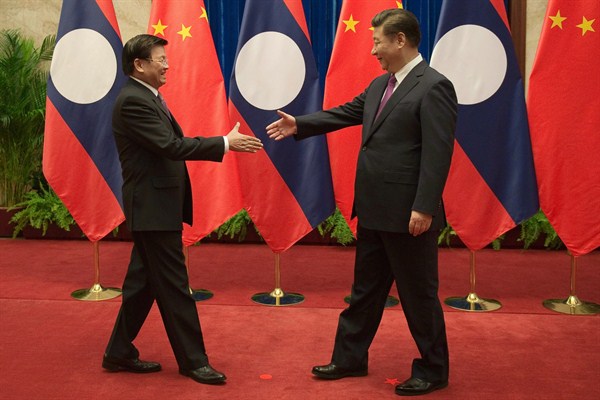When Laos’ National Assembly ratified the appointment of a new president and prime minister to lead the closed, one-party communist state in early 2016, most analysts viewed the political changes in Vientiane as signaling a shift away from its much larger and influential neighbor, China. Laos, it seemed, was making a concerted attempt to balance relations more equally with its other neighbors.
Yet two years on, China’s influence in its impoverished southern neighbor has only grown. A controversial railway project funded by Beijing is moving forward, and President Xi Jinping made a high-profile state visit in November, touting Laos as a lynchpin in China’s massive “One Belt, One Road” infrastructure initiative.
Despite the desire of Laotian leaders to avoid displaying the kind of unabashed deference to Beijing practiced in neighboring Cambodia, China’s financial clout has proven too tempting to resist for a country in urgent need of major development assistance. Embracing such large-scale Chinese investment may bring benefits, but it is also a risky proposition whose costs may not be known for years.

